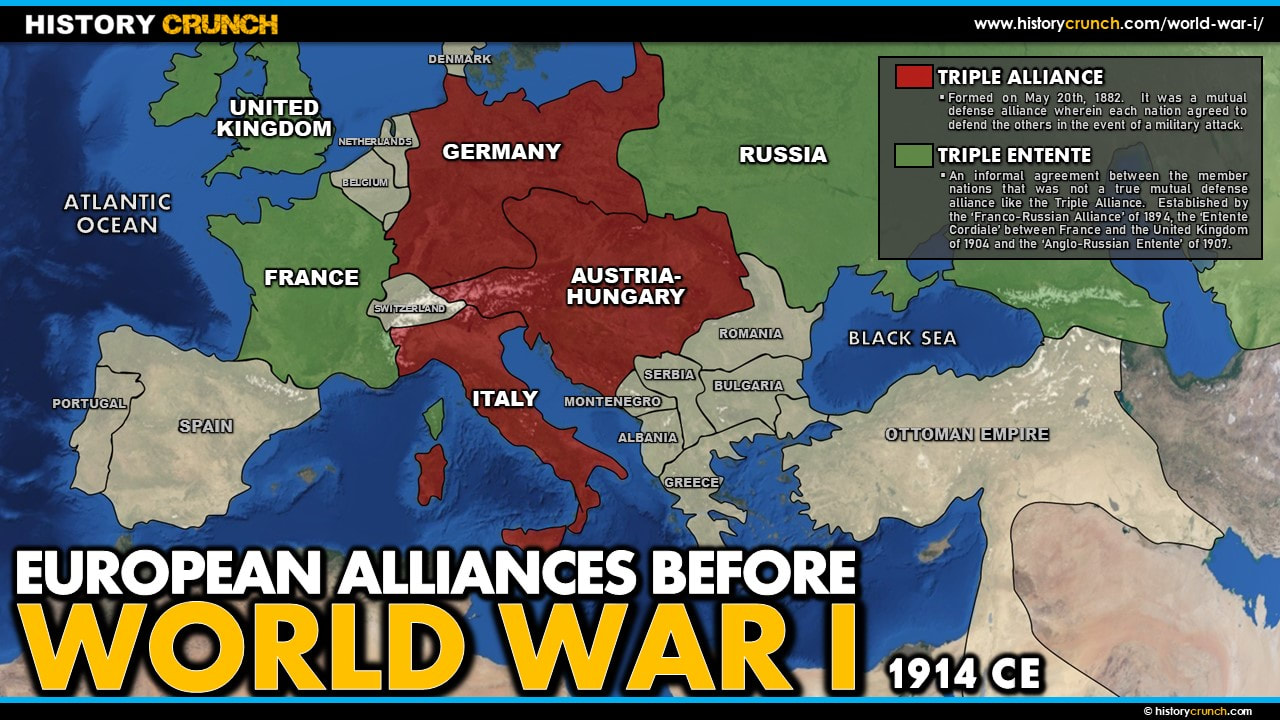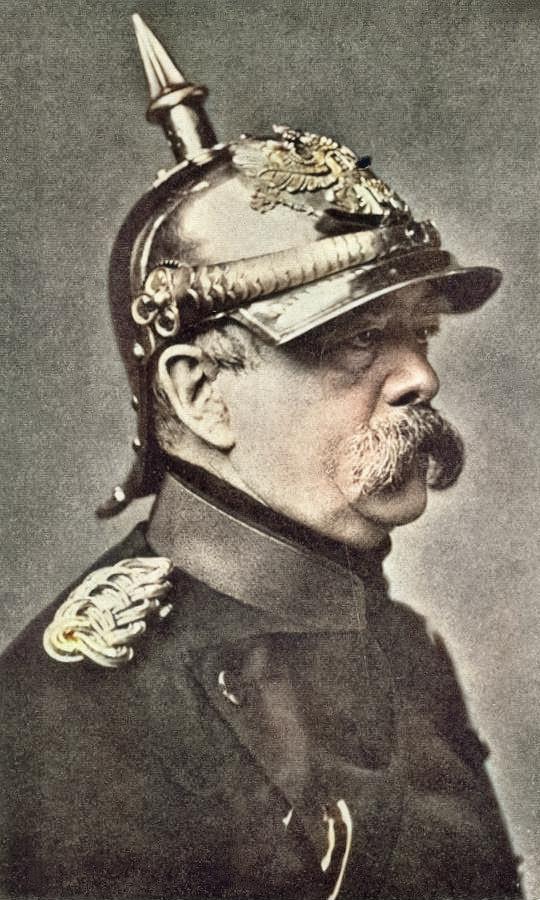TRIPLE ALLIANCE & WORLD WAR I
The Triple Alliance was a mutual defense alliance between the major European nations of Germany, Austria-Hungary and Italy. This means that each member nation agreed to come to the military aid and defense of the other member nations in the event that they were attacked. The Triple Alliance was first formally established by the member nations on May 20th, in 1882. In the years leading up to 1914, which was the start of World War I, the main terms of the Triple Alliance were renegotiated and renewed several times. For instance, each of the member nations had shifting loyalties and issues of national interest in the three decades before World War I, which caused them to seek new terms of the original agreement.
Germany was the main nation that sought to create the Triple Alliance in 1882. At the time, Germany was led by Otto von Bismarck. Bismarck is remembered today for his role in unifying the country of Germany from a series of smaller kingdoms in 1871. He was also the first Chancellor of Germany and served in the role from 1871 until 1890. Following a series of small wars against other European powers, including France, Bismarck sought to protect German interests in Europe. More specifically, Prussia (the largest Germanic Kingdom before the unification of Germany) defeated France in the Franco-Prussian War, which lasted from 1870 until 1871. As part of its defeat, France gave up a territory of its land called Alsace-Lorraine, which bordered with Germany. Germany’s control over Alsace-Lorraine was a major factor, which led to heightened tensions between Germany and France. As such, Germany approached Austria-Hungary about forming an alliance. The German states and Austria have a long history of cooperation, due to their ethnic, cultural and political similarities. Italy joined the agreement as a means of protecting itself from France, following imperialistic competition in Africa over colonies.
Therefore, the Triple Alliance was a major factor in dividing Europe between the European powers of the time. In fact, one of the main reasons why historians consider the alliance systems before World War I as a main cause for the outbreak of the war, is because it set the stage for hostilities between nations such as Germany and France. For example, the Triple Alliance eventually led to the informal agreement of the Triple Entente between Britain, France and Russia as a competing alliance system in Europe. Another issue related to the Triple Alliance and the outbreak of World War I, was that the main terms of the treaty were kept secret. This helped lead to the start of World War I because it prevented the member nations of the Triple Entente from understanding how their actions impacted the military response from Germany. As a result, this caused the tensions between the nations to increase dramatically following the assassination of Austrian Archduke Franz Ferdinand on June 28th, 1914.
As stated above, the terms of the original agreement for the Triple Alliance were renegotiated several times. In fact, the member nations of Germany, Austria-Hungary and Italy did not always agree with each other on certain issues. For instance, Italy and Austria-Hungary had competing interests in region and islands along the Adriatic Sea and the border they shared. This sense of competition led Italy to make a secret agreement with France in 1902, just months after renewing the Triple Alliance with Germany and Austria-Hungary. In general, the terms of both agreements that Italy made centered on control over regions of the Balkans, which is a region in southeastern Europe. As such, when tensions between the European nations erupted after the assassination of Franz Ferdinand, Italy was pulled by both the nations of the Triple Alliance and the Triple Entente.
Ultimately, Italy sided with the Triple Entente as it considered Austria-Hungary to be the aggressor in the lead up to World War I. This is because, following Ferdinand’s death, Austria-Hungary began taking aggressive actions against Serbia, which was located in the Balkans. As a result, Italy declared war against Austria-Hungary as the start of World War I, and joined the Allied Powers alongside France, Britain and Russia. More specifically, Italy officially left the Triple Alliance on May 3rd in 1915. Whereas, Austria-Hungary and Germany formed the Central Powers. Regardless, historians consider the history of the Triple Alliance as a significant contributing factor to the start of World War I in 1914.
CITE THIS ARTICLEAUTHOR
|
|


